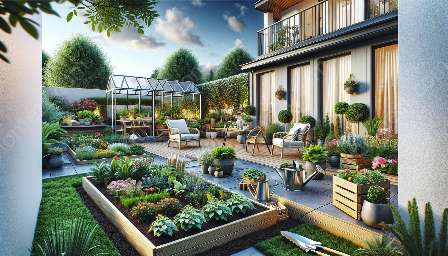Gardening is a timeless and fulfilling hobby that can offer numerous physical, mental, and emotional benefits. For seniors, it provides an opportunity to stay active, connect with nature, and enjoy the therapeutic effects of gardening. However, as seniors age, they may face challenges that require adapting gardening techniques and tools to make this activity more accessible and enjoyable. This guide explores various aspects of gardening for seniors, including suitable plants, ergonomic tools, and modifications for yard and patio spaces.
Gardening Benefits for Seniors
Before delving into senior-friendly gardening techniques, it's important to understand the benefits that gardening can offer to older individuals:
- Physical Exercise: Gardening tasks such as planting, weeding, and watering can provide gentle physical exercise, promoting flexibility, strength, and motor skills.
- Mental Stimulation: Engaging in gardening activities enhances cognitive functions and promotes mental well-being, helping to reduce the risk of dementia and other age-related cognitive decline.
- Stress Reduction: Spending time in a garden setting can have a calming effect, reducing stress, anxiety, and depression.
- Social Interaction: Gardening can be a social activity, allowing seniors to connect with others who share their interest in plants and outdoor spaces.
Adapting Gardening Techniques for Seniors
As seniors navigate physical limitations or mobility issues, making adjustments to traditional gardening techniques can help them continue to enjoy this pastime:
- Raised Beds and Containers: Utilizing raised beds or containers can reduce the need for bending or kneeling, making it easier for seniors to access and care for their plants.
- Adaptive Tools: Ergonomic gardening tools with soft-grip handles, extended reach, and lightweight designs can minimize strain on aging joints and muscles.
- Pathway Maintenance: Ensuring clear pathways and level surfaces in garden spaces can prevent tripping hazards and accommodate mobility aids such as wheelchairs or walkers.
Suitable Plants for Senior Gardeners
When selecting plants for a senior-friendly garden, consider the following factors:
- Low-Maintenance Varieties: Choose plants that require minimal care and attention, reducing the physical demands on senior gardeners.
- Color and Fragrance: Opt for plants known for their vibrant colors and pleasant scents, enhancing the sensory experience of the garden space.
- Adaptive Gardening: Consider plants that attract beneficial wildlife, such as pollinators and birds, to create an interactive and lively garden environment.
Modifications for Yard and Patio Spaces
In addition to adapting gardening techniques, seniors can enhance their outdoor spaces with various modifications:
- Accessible Seating Areas: Incorporate comfortable and easily accessible seating areas in the garden, allowing seniors to rest and enjoy their surroundings.
- Lighting: Install adequate lighting to ensure safe and well-lit pathways, extending the usability of outdoor spaces into the evening hours.
- Garden Tools Storage: Set up convenient storage solutions for gardening tools and supplies to minimize effort and maximize independence in maintaining the garden.
Creating a Thriving Senior-Friendly Garden
By incorporating these strategies and considerations, seniors can continue to cultivate a vibrant and nurturing garden space that positively impacts their overall well-being. Gardening for seniors should be a source of joy, connection, and vitality, and with the right support and adjustments, older individuals can confidently embrace their love for gardening well into their golden years.



